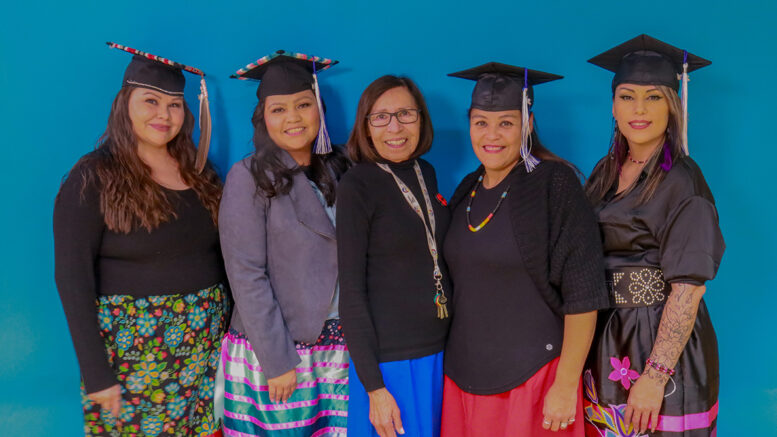By Laura Mushumanski, Local Journalism Initiative Reporter
(ANNews) – If you are being challenged with certain aspects of your life — remember that even though it may be heavy, this is teaching you how to sustain yourself emotionally, mentally, physically, and spiritually. That it is okay to feel uncertain and uncomfortable because you have not experienced this part of your life, yet. This understanding is part of what Indigenous people call ‘life-long learning’ — we are learning all the time, in different ways that shape the depths of our understanding and how we perceive the world around us as we continue with our learning journey called life.
“Education is extremely important for a person’s well-being. Whether that is both types of education — western and Indigenous education — I am not just talking about learning in English and writing in English but speaking Cree and knowing how to communicate in your first language. All that helps support a better community, a better person — education is everything, it is your life. Whether it is life-long learning in the sense of getting a degree or if it is at the community — having skills, it is still education… You are learning to sustain yourself and learning to be a person who can take care of themselves but also take care of others.”
One of our aunties who always wanted to be a teacher, Normie Carlson, is now fulfilling that role at Yellowhead Tribal College, and with her she brings years of understanding the importance of education, as well as the understanding of education as everything we do in life.
“I wanted to be a teacher before I went to school. I remember pretending [to be a teacher] to my younger siblings. It’s kind of a life-long dream, but it took me a really long time to get there. I went different paths first, [eventually] facilitating and being able to teach lead me to this job — it was almost like a building block… You are building yourself as a person: emotionally, mentally, physically, and spiritually to take on a role. I think all those experiences I had brought me to this place and what I am currently doing today.”
Carlson came to understand through her own learning journey that learning is also about raising yourself as an individual, “being a part of a community, a part of a family — learning about your own history. All of it is educational.” She has observed that no one stops learning, that “it is not just about post-secondary learning — you are learning in life, you are learning through your experiences, you are engaged in all kinds of cultural practices, ceremonies, language building — all of those. All of it is education, it is an everyday action. Every day you are learning something new about yourself, about people, about what you are doing and how best to optimize that experience.”
In the classroom, Carlson also shares with students the different ways to understand where they are at with information being shared — both emotionally and psychologically. It is not just having a sense of evaluating oneself or assessing oneself, it is much deeper rooted than that. It is about including oneself into the process of learning, “it is important and something that you are doing on a daily basis whether you acknowledge it or not.” The learning aid she utilises is reflective writing, where in Indigenous education it is about taking time to reflect, introspect, and move forward with understanding new ways of knowing.
Another vital way to learn outside the classroom is being on the land. Carlson explained, “It is great to be in the classroom, great to have all these other abilities to access, but it is different when you are in nature. You learn to appreciate, acknowledge, recognize and honour all the different ancestors and the Creator and it brings you to be more grounded.”
And while Carlson’s ways of knowing have shifted over time, one piece of advice she would gift any learner is, “be patient with your own abilities to learn, it is a step-by-step process.” This understanding and practice can help sustain us emotionally, mentally, physically, and spiritually.



Be the first to comment on "Life-long learning for a person’s well-being with Normie Carlson"